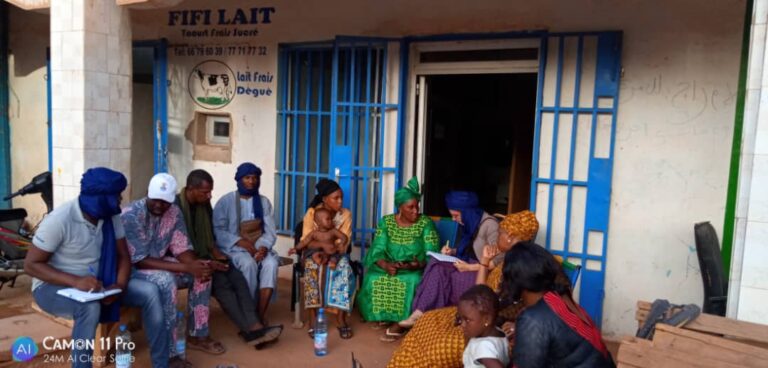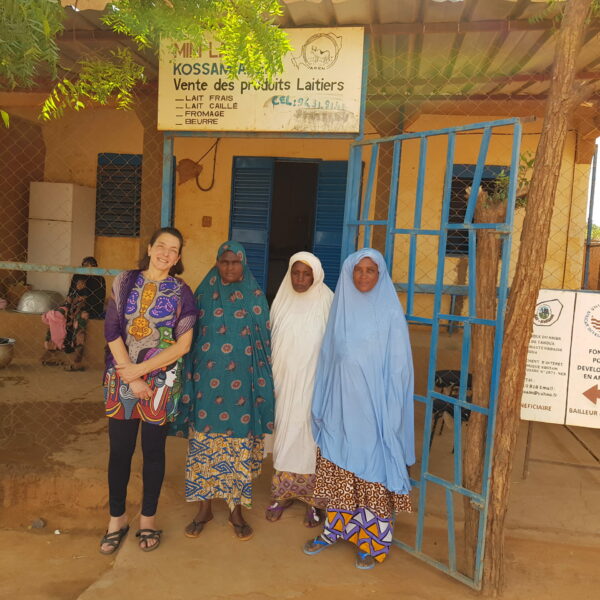The Dutch Ministry of Foreign Affairs is aiming to Start a powerful new initiative across Mali, Burkina Faso and Niger to boost Youth Job Creation in Ag Value Chains and Empower Women and Youth Entrepreneurship — But Where to start and how to be the most impactful in the Sahel? Catalystas Consulting has just the right team, gender focus, and drive to undertake the baseline country assessment to provide insights how the Embassy and the Netherlands Enterprise Development Agency(RVO) could best make soon to be in place strategy for intervention.

Starting with an in-depth look at the initiatives already in place in each country, the goals of the various actors involved, and as many lessons learned as we could find, our aim was to find the perfect niches for Dutch interventions that combined local needs with Dutch expertise to create mutually beneficial and high-quality impacts on local, national, regional, and global levels. Once we’d tackled the initial information overload and had a thorough understanding of the general situation in each country, it was time to dig deeper. In order to maximize effectiveness and efficiency while on the ground, each of our field team operatives found at least one local consultant to work with, ensuring that we could connect with locals, interpret between various languages, and reach the areas that would normally be off-limits or too dangerous to travel to as foreigners. The local consultants proved themselves time and time again as crucial members of our team, and our mission would certainly not have been possible without them.

Alongside these and many other suggestions, Catalystas also examined possibilities for Dutch involvement in programs aimed at stimulating the growth of the entrepreneurship sector in each country. Maintaining our focus on women and youth, we visited a number of incubation hubs, spoke to businesses, individuals with entrepreneurial aspirations, government ministries, and NGOs working in the region. We found a number of major barriers that spanned the whole region. More than anything, accessing finance proved to be a major barrier for budding entrepreneurs across all three countries, followed closely by the unstable security situations, lack of developed and well maintained infrastructure, difficulties in accessing public services and information, and high levels of nepotism and corruption throughout official structures. For women, tendencies toward traditionally patriarchal systems meant additional barriers such as familial and community expectations of marriage and motherhood rather than an entrepreneurial career path. In focus groups held in Mali, we heard from many young women that their entrepreneurial ambitions were simply an activity to keep them busy until they got married, at which time they would give up their businesses to become full-time wives and mothers.
For those women who forged ahead toward their business dreams anyway, many faced difficulties in obtaining financing and loans due to a lack of collateral or assumptions that any funds would be ultimately controlled by the men in a woman’s life. The most successful business women we met were only able to achieve success after becoming widowed or divorced, although we did encounter a number of supportive husbands working together with their wives (Go, male allies!!). Despite the many obstacles, there were also many great initiatives working to help support the growth of entrepreneurship in each country. In Niger for example, we met with incredibly inspiring female leaders who are hard at work realizing their aspirations of creating incubation hubs for women. The Empow’Her program at the Oasis incubation hub, for instance, presented a fantastic foundation for a scalable training model providing support to Nigerien women gaining valuable knowledge in entrepreneurial management skills that enable independence and knowledge sharing with their communities.
As our field teams travelled through each country collecting essential information, local insights, and connections to potential partners, the Catalystas HQ team made sure to centralize and triangulate everything we learned, looking for cross-cutting themes and overlapping gaps and opportunities, and creating a regional strategy for the Dutch to implement in a thoughtful and practical way. Taking into consideration identified risks and barriers, local needs, Dutch added value, and practical elements such as sustainability and conflict sensitivity, each of our field teams, together with the HQ team, identified their top recommendations for both job creation and entrepreneurship. Once returned from their missions, we developed our final findings, detailed in a report and presentation for a variety of Dutch ministries and government-associated organizations. With over 120 interviews held, 250 stakeholders identified, 6 focus groups conducted, and 36 recommendations made, we would consider our summer well spent! While we realize that not every single recommendation will be selected, Catalystas’ goal is to provide a wide variety of high-quality, sustainable opportunities that represent local needs and desires while taking advantage of Dutch areas of expertise.

This informational framework and series of recommendations aims to support the Dutch in laying a strong foundation for effective and long-term impacts across Mali, Burkina Faso, and Niger, and we can’t wait to see the fruits of our labor!
For more information about our methodologies, our findings, or our other work in the region, get in touch!

Catalystas Consulting, Lange Voorhout 43, 2514 EC Den Haag, The Netherlands
© Catalystas Consulting. All rights reserved. Privacy and Policy
An Iranian-American with more than ten years of experience in international relations, economic development, and political empowerment, Beatrice is heavily invested in making the world a better place. Her work spans multiple regions of the world, often including high-risk environments, and her clients include non-governmental organizations, governmental bodies, and small-to-medium–sized corporations throughout the US, EU, Middle East, and Sub-Saharan Africa.
Originally focused on the areas of economic development, security, and disarmament, Beatrice turned to the humanitarian field, where she has expanded her expertise to include international security policy, gender equality, and innovation planning. She is a highly skilled grant writer, program designer, auditor, and capacity and impact assessor, as well as an authority on client and donor relations and ethical corporate engagement strategy.
Her personal and professional interests come together in the use of technology and data to provide solutions and insight into human rights, higher education, sexual reproductive rights, and environmental preservation.
We built Lysta as an answer to one of our own problems: the need to quickly assemble teams of experts across various subject matter, geographic, linguistic, and thematic areas for projects and proposals as they arise. We quickly realized that we were not the only ones facing this challenge! With the speed that development projects require hiring, turnaround, and technical insights, we see first hand how helpful it is to have a ready-made database of vetted experts to call on.
For existing and potential Clients, you can access all consultant full profiles by signing up here as a client for free.
For consultants, adding your profile to Lysta means jumping to the top of the list for our clients in recruitment processes. We do the heavy lifting: the CV reviews, interviews, vetting, and personnel management; so when our clients come to us, they know they’re hiring someone they can trust to deliver high quality, timely results. Click here to add your profile for review.
We’re proud to be a link in the chain that connects the best of the best – don’t hesitate to reach out and see how you can put Lysta to work for you!